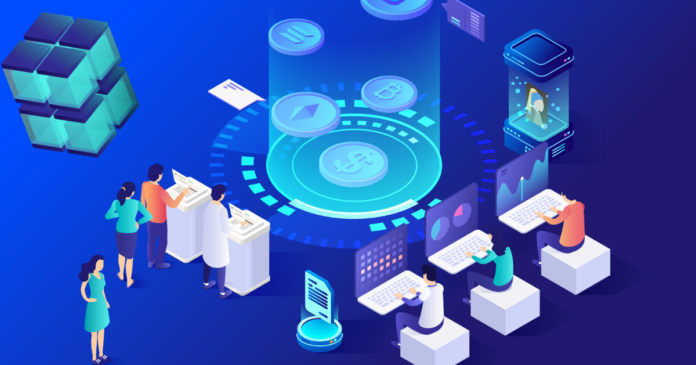A DAO is a decentralized autonomous organization that manages the blockchain network by relaying decisions to the community rather than developers. In this article, we will explore the blockchain industry’s first version of a governance model Decentralized Autonomous organizations also known as DAOs.
All blockchain networks have one thing in common decentralization. Decentralization means that the blockchain network has not one central operator who controls the network instead control is transferred to everyone equally which means that all members of the network can work together to achieve the common goal with alpine bast around y adding one.
Making progress involved making decisions and in this case, the entire community has to reach a consensus on important issues and proposals. The specific process of reaching a consensus always differs from one governance model to another. However, the most famous governance system is a DAO.
What is a DAO?
A DAO is a decentralized autonomous organization that manages the blockchain network by relaying decisions to the community rather than developers. Blockchain developer dan Leeman originally introduced a concept in 2013 in the form of Decentralized Autonomous Corporations. However the DAO today we know today was refined by Ethereum cofounder Vitalik Butin a year later.
According to Vitalik’s version DAOs effectively memic a company that works without any managers. Instead, the entire system relies on the user’s smart contract that process task execute commands, and accept decisions. The DAO requires a set of rules which are embedded in a smart contract. Once they find these rules will trigger the moment that the right conditions are met. This means that smart contracts can function anonymously.
As such the system allows decentralization and an environment where no users are directly involved with managing the network. The decision-making process in DAOs is unique and it is the main format used by many Defi projects. Voting power is delegated to the community specifically investors who participated in the funding rounds. DAO uses an event like ICO initial coin offering and presales to distribute their tokens which are needed to vote on initial. Tokens are dispensed to users to gain a direct say and how a project works. The starting process and at this point and the DAO officially launches since it can now rely on a new community.
The governance mechanism of a DAO revolves around the use of governance tokens at all times. Whenever someone wants to submit a government proposal the user must take an assist by locking them into a project smart contract. While staking necessarily because it prevents proposals from spamming and ensures that everyone acts in a good way.
Community members who pick aside in the government proposal may also have to lock their tokens for the duration of the process but this is not the case in every DAO.
Related: What is a Liquidity pool in Crypto & How does it Work?
Disadvantages
There are as many disadvantages as there are advantages when it comes to DAO governance models. While interesting decisions for the entire community sound great in theory. It opens an entirely new dimension that can rune project greed. Since voters are also token holders they are financially invited to vote on the decisions that positively affect their assets. Such decisions are not always healthy for the project’s long-term features.
Voting also slows down the decision-making process making it hard for a team to implement updates swiftly. For example, the original DAO project from 2016 was unable to protect its funds when a hacker executed an exploit that cause the community to lose millions of dollars.
DAOs may have their limitations the shared idea of transferring the control to all community members is enough to remain to bullish on the future of decentralized organizations. Thanks to the rise of Defi DAOs have turned mainstream and almost every protocol has a governance model which investors can join.
Related: What Is Blockchain and Why blockchain was created?
However, developers have yet to solve the grade and prevent users from chasing profits. What do you think would the governance model DAO succeed in eliminating greed? Let us know in the comment below.

